

The mobile commerce ecosystem has reached a critical inflection point. Current market dynamics reveal :
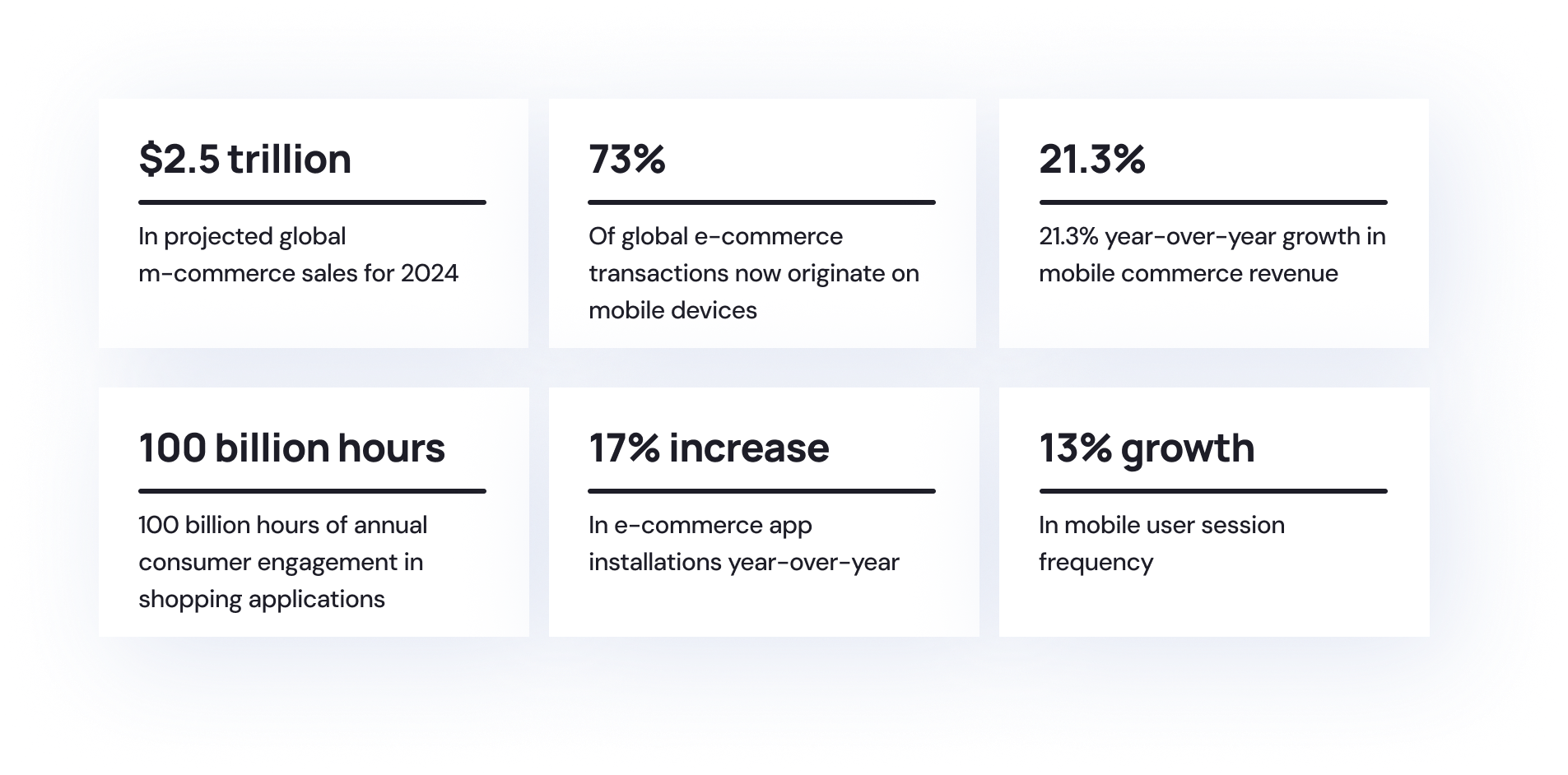
Mobile devices have fundamentally altered purchase decision pathways, with consumer behavior data revealing unprecedented levels of mobile engagement:
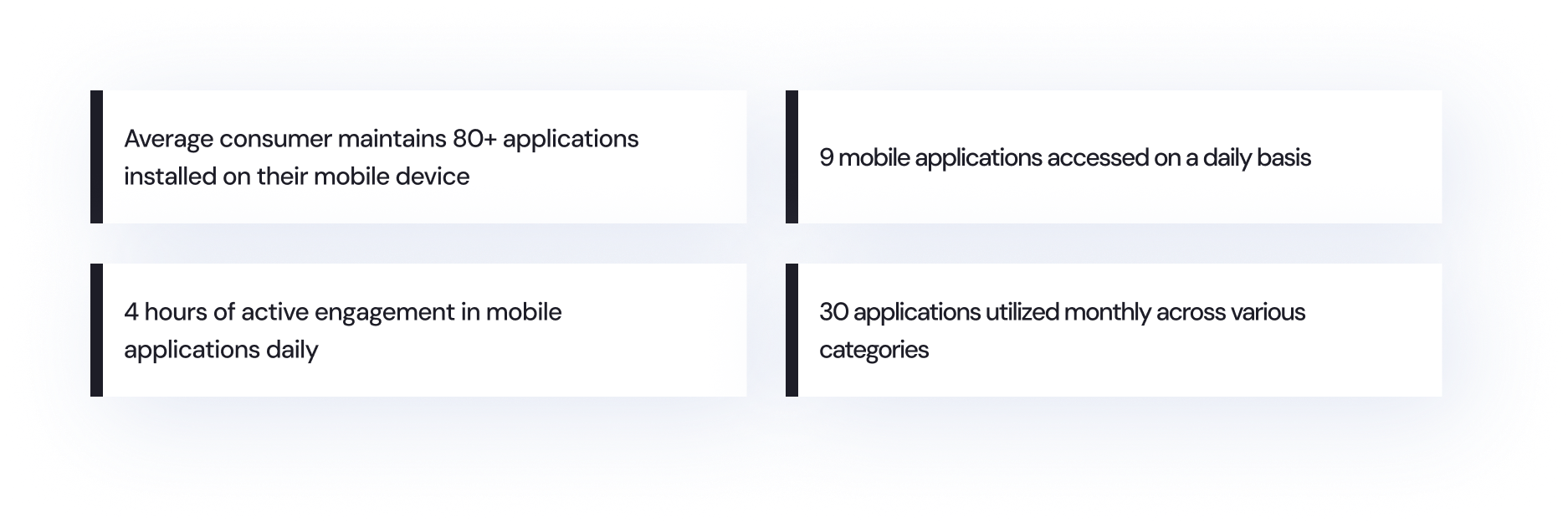
For enterprise retailers, mobile commerce optimization is no longer a competitive advantage—it's a business continuity requirement. Organizations that fail to deliver native mobile experiences risk significant market share erosion as consumer expectations continue to evolve.
The convergence of mobile-first shopping behavior, advanced personalization capabilities, and integrated payment systems has created an environment where retailers can achieve:

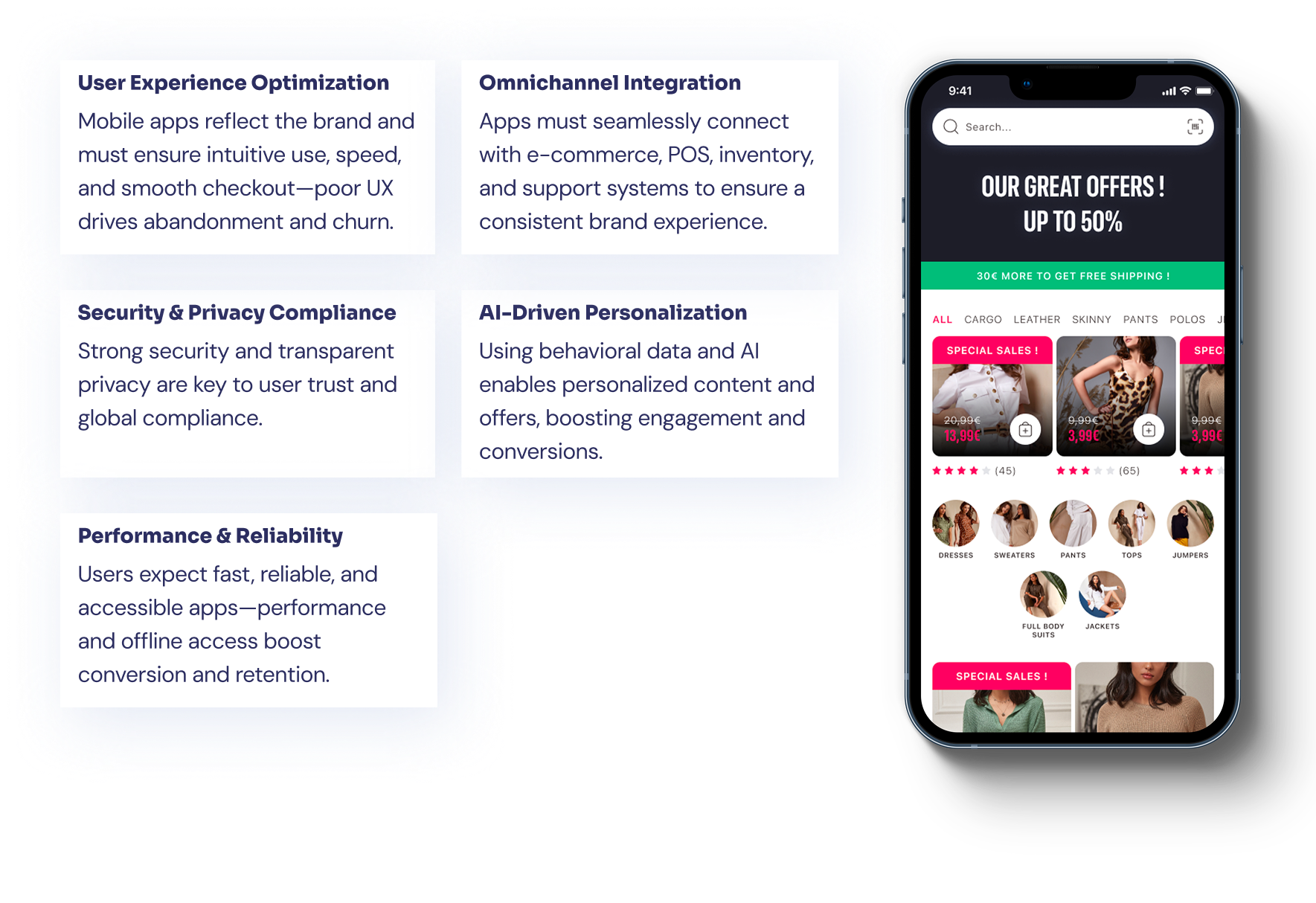

Organizations implementing comprehensive mobile commerce strategies report measurable improvements across critical business metrics:
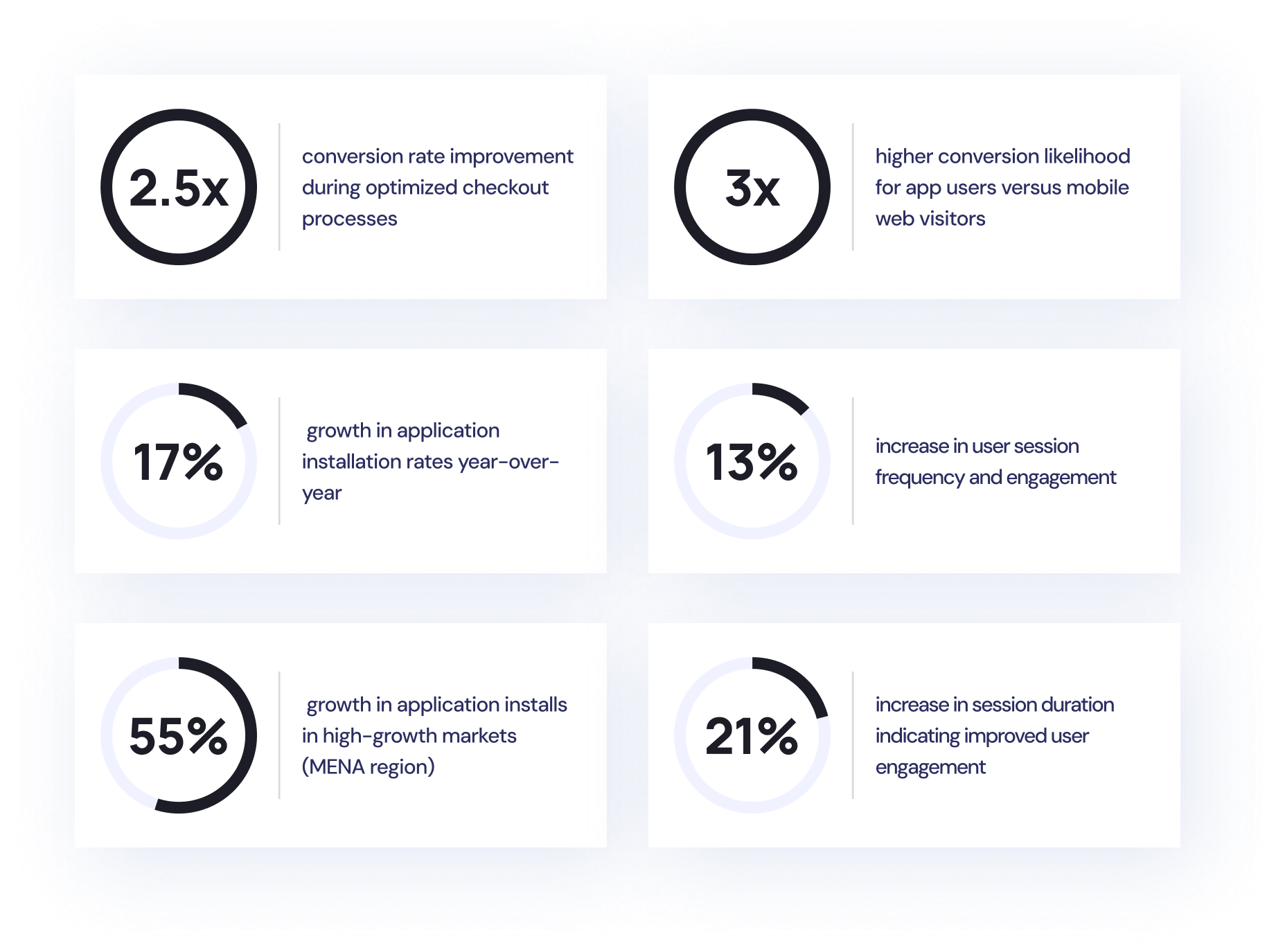
Mobile commerce adoption and performance metrics vary significantly across global markets, requiring localized strategies for optimal results. High-growth regions demonstrate accelerated adoption rates while mature markets focus on experience optimization and retention strategies.
In-App Commerce Monetization As traditional advertising channels become saturated, brands are shifting focus to direct-to-consumer models within mobile applications, creating new revenue streams and customer relationship opportunities.
Artificial Intelligence will be deeply embedded in mobile apps, advancing beyond basic recommendations to deliver hyper-personalized content, predictive interfaces, and sophisticated natural language interactions. By 2030, the mobile AI market is projected to grow from $8.56 billion in 2020 to $84.8 billion, reflecting a CAGR of 26.44%. AI-driven virtual assistants will become far more capable, handling complex tasks and automating daily routines with minimal user input, significantly enhancing app efficiency and accessibility.
Cloud-based mobile app designs will become dominant, decreasing dependency on device capabilities and allowing for richer, more consistent experiences across different platforms. Cloud connections will enable immediate upgrades, smooth data syncing, and teamwork between devices.
In-app advertising revenue is projected to reach between $410 billion and $544 billion by 2030, with a CAGR ranging from 17% to nearly 20% depending on the source4. The vast majority of apps (over 90%) are free and rely on IAA for monetization, making it the backbone of the app economy34. Non-gaming app categories (like productivity, health, and utilities) are seeing significant growth in ad spend, not just games and social media4.
Native mobile applications significantly outperform mobile web experiences across all major m-commerce metrics, making them a strategic imperative for retailers aiming to drive growth. As of 2025, over 54% of mobile commerce transactions take place within apps, compared to 46% via mobile web. Apps deliver a markedly superior performance, with conversion rates approximately 157% higher and average order values exceeding those on mobile web by more than 15%. User engagement is also deeper, with consumers browsing over four times as many products per session within apps.
Critically, app-based shopping results in a significantly lower cart abandonment rate—around 20% compared to nearly 86% on mobile web. Furthermore, only 12% of consumers report finding mobile-web shopping convenient, highlighting the considerable user experience advantage offered by native applications. These figures underscore the need for enterprises to prioritize app-centric strategies as a core component of their digital commerce transformation.
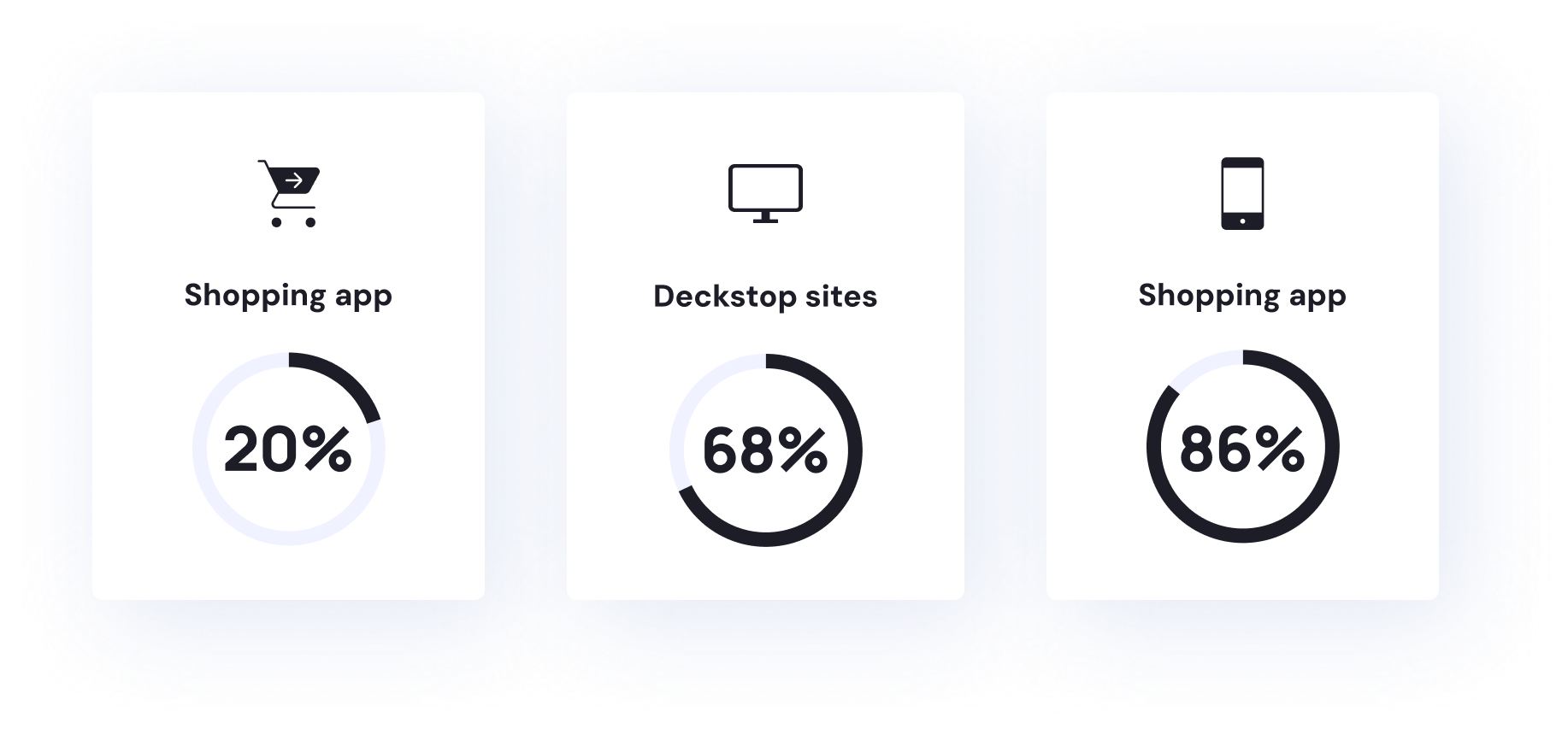
Bayretail represents the next generation of mobile commerce platforms, specifically engineered for enterprise retailers navigating the complexities of mobile-first consumer behavior. The platform addresses critical market challenges through integrated technology solutions that deliver measurable business outcomes.
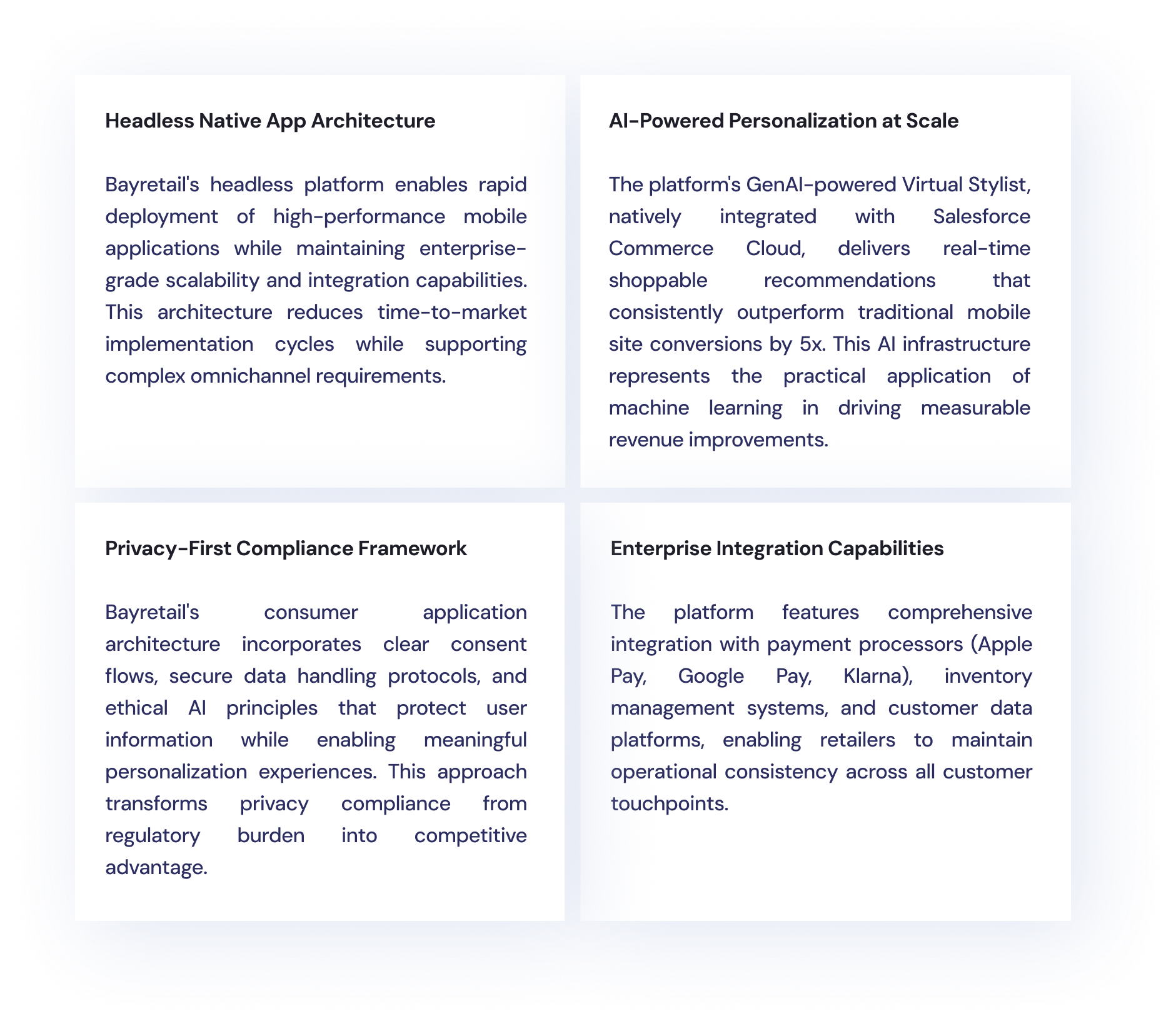
Organizations implementing Bayretail's platform report significant improvements in key performance metrics:
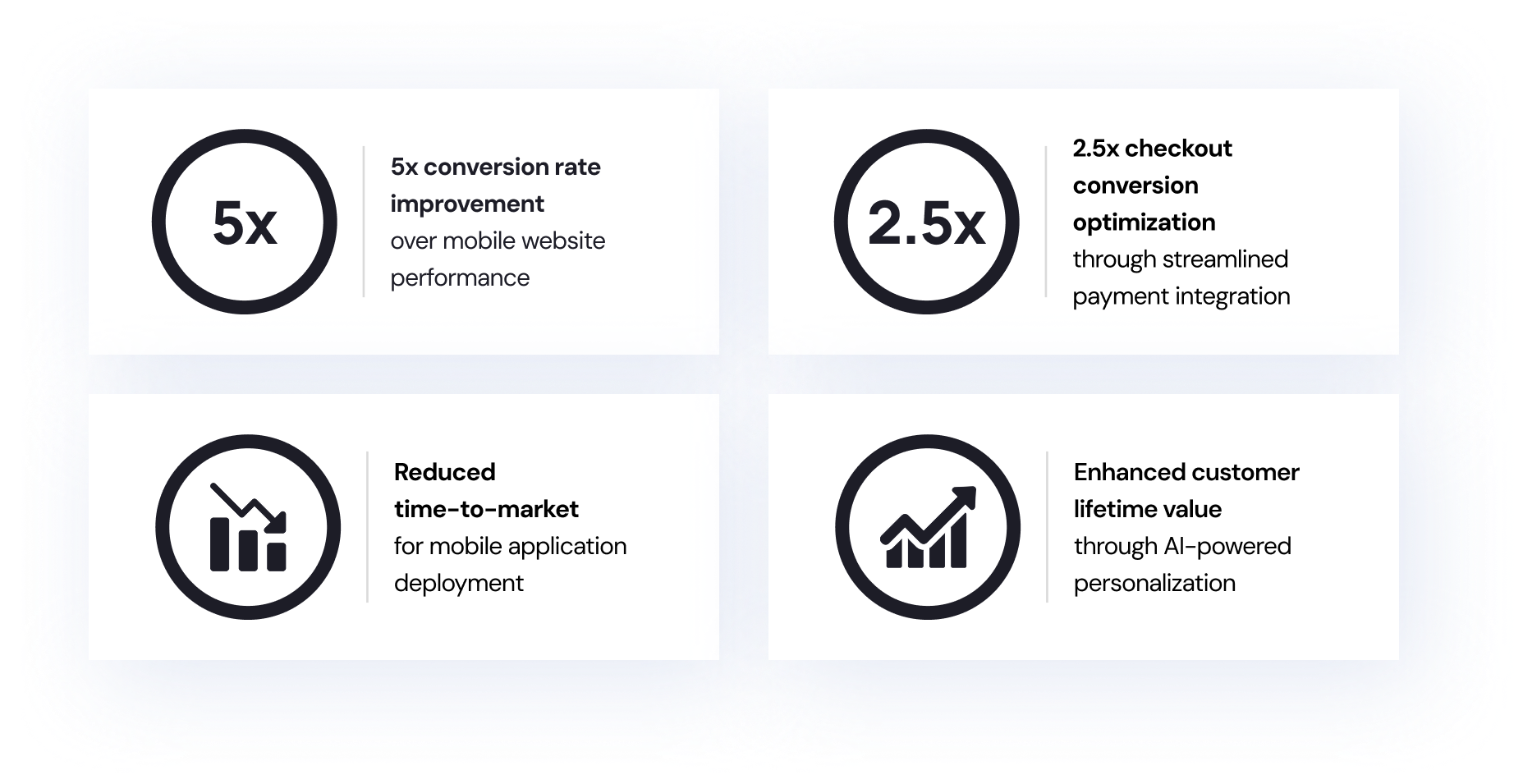
Quantifiable Performance Improvements
As mobile commerce continues its rapid evolution, Bayretail positions itself at the intersection of technological innovation and practical business implementation. The platform enables enterprise retailers to capitalize on the $2.5 trillion mobile commerce opportunity while building sustainable competitive advantages through superior customer experiences.
For organizations evaluating mobile commerce platform solutions, Bayretail offers a comprehensive approach that addresses both immediate implementation needs and long-term strategic positioning in an increasingly competitive and sophisticated market environment.

Get in touch to schedule a full demo of the Retail Super-App and discover how it can help your brand do more.